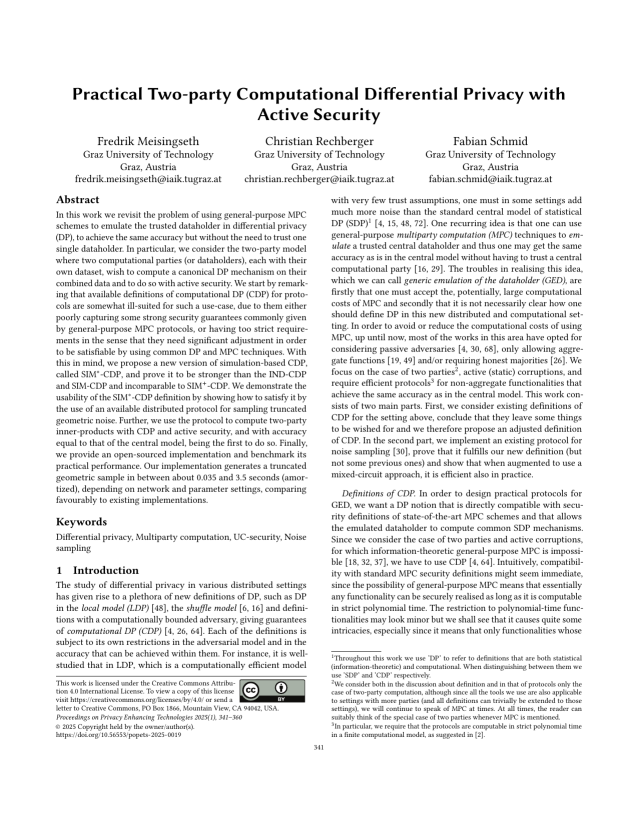Practical Two-party Computational Differential Privacy with Active Security
Authors: Fredrik Meisingseth (Graz University of Technology), Christian Rechberger (Graz University of Technology), Fabian Schmid (Graz University of Technology)
Volume: 2025
Issue: 1
Pages: 341–360
DOI: https://doi.org/10.56553/popets-2025-0019
Abstract: In this work we revisit the problem of using general-purpose MPC schemes to emulate the trusted dataholder in differential privacy (DP), to achieve the same accuracy but without the need to trust one single dataholder. In particular, we consider the two-party model where two computational parties (or dataholders), each with their own dataset, wish to compute a canonical DP mechanism on their combined data and to do so with active security. We start by remarking that available definitions of computational DP (CDP) for protocols are somewhat ill-suited for such a use-case, due to them either poorly capturing some strong security guarantees commonly given by general-purpose MPC protocols, or having too strict requirements in the sense that they need significant adjustment in order to be satisfiable by using common DP and MPC techniques. With this in mind, we propose a new version of simulation-based CDP, called SIM*-CDP, and prove it to be stronger than the IND-CDP and SIM-CDP and incomparable to SIM+-CDP. We demonstrate the usability of the SIM*-CDP definition by showing how to satisfy it by the use of an available distributed protocol for sampling truncated geometric noise. Further, we use the protocol to compute two-party inner-products with CDP and active security, and with accuracy equal to that of the central model, being the first to do so. Finally, we provide an open-sourced implementation and benchmark its practical performance. Our implementation generates a truncated geometric sample in between about 0.035 and 3.5 seconds (amortized), depending on network and parameter settings, comparing favourably to existing implementations.
Keywords: Differential privacy, Multiparty computation, UC-security, Noise sampling
Copyright in PoPETs articles are held by their authors. This article is published under a Creative Commons Attribution 4.0 license.

